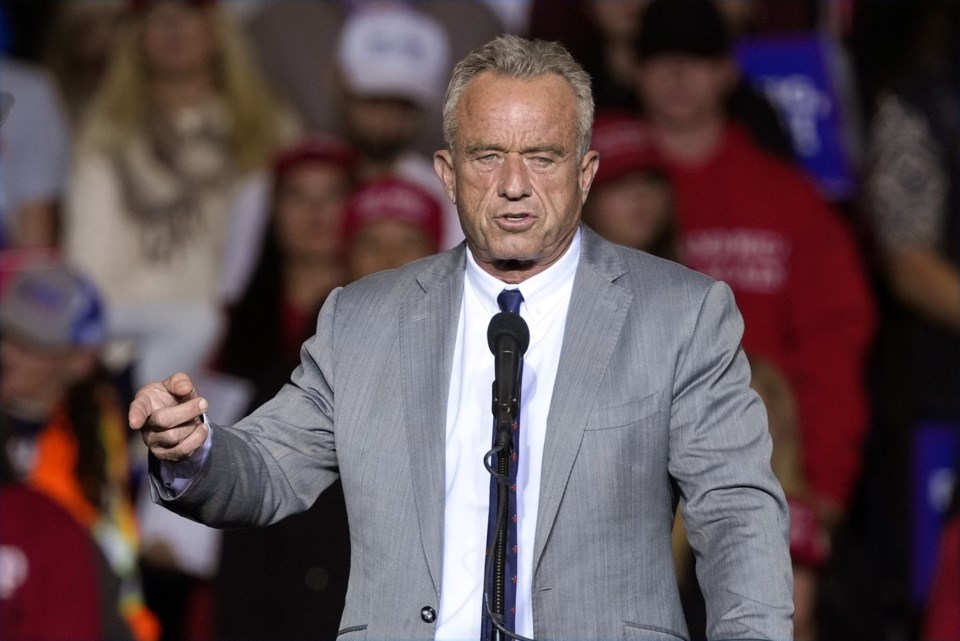LONDON (AP) — U.S. Health Secretary Robert F. Kennedy Jr. said the country is pulling its support from the vaccines alliance Gavi, saying the organization has “ignored the science” and “lost the public trust.”
A video of Kennedy's speech was shown to participants at a Gavi meeting in Brussels on Wednesday, where the vaccines group was hoping to raise at least $9 billion for the next five years.
Gavi is a public-private partnership including WHO, UNICEF, the Gates Foundation and the World Bank. It has paid for more than 1 billion children to be vaccinated through routine immunization programs, saving an estimated 18 million lives. The United States has long been one of its biggest supporters; before Donald Trump’s re-election, the country had pledged $1 billion through 2030.
Kennedy called on Gavi “to re-earn the public trust and to justify the $8 billion America has provided in funding since 2001,” saying officials must “consider the best science available, even when that science contradicts established paradigms.” Kennedy said until that happens, the U.S. won’t contribute further to Gavi.
Kennedy, a longtime vaccine skeptic, said he and President Trump were concerned about how Gavi and the World Health Organization partnered together during the COVID-19 pandemic to work with social media companies “to silence dissenting views, to stifle free speech and legitimate questions” during a time when many people had questions about vaccine safety.
Kennedy said Gavi continues to make “questionable recommendations,” like advising pregnant women to get immunized against COVID-19 and funding the roll-out of a vaccine against diphtheria, tetanus and pertussis in poorer countries.
WHO and other health authorities have recommended pregnant women get vaccinated against COVID-19, saying they are at higher risk of severe disease.
Kennedy said he has seen research that concluded that young girls vaccinated against diphtheria, tetanus and pertussis were more likely to die from all other causes than children who weren’t immunized.
Some observational studies have shown that vaccinated girls do have a higher death rate compared to unvaccinated children, but there is no evidence the deaths are caused by the vaccine.
Gavi said in a statement Thursday that its “utmost concern is the health and safety of children.” The organization said any decision it makes on vaccines to buy is done in accordance with recommendations issued by WHO's expert vaccine group.
“This ensures Gavi investments are grounded in the best available science and public health priorities,” it said. Gavi said scientists had reviewed all available data, including any studies that raised concerns, and that the diphtheria, tetanus and pertussis vaccine has “played a key role in helping halve childhood mortality.”
The British government said Wednesday it would give 1.25 billion pounds ($1.7 billion) between 2026 and 2030 to Gavi. It said the money would help Gavi protect up to 500 million children in some of the world’s poorest countries from diseases including meningitis, cholera and measles.
___
The Associated Press Health and Science Department receives support from the Howard Hughes Medical Institute’s Department of Science Education and the Robert Wood Johnson Foundation. The AP is solely responsible for all content.
The Associated Press




